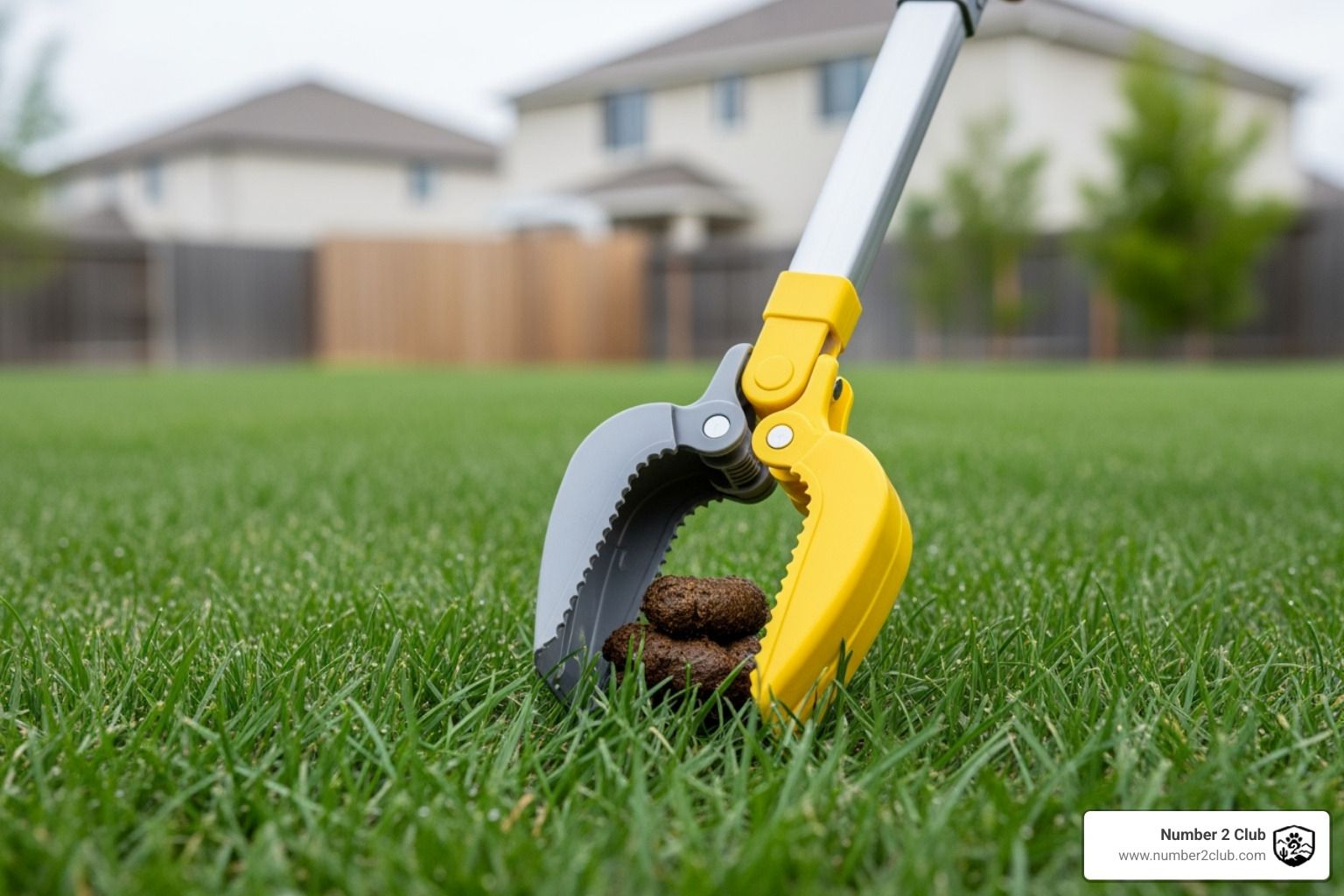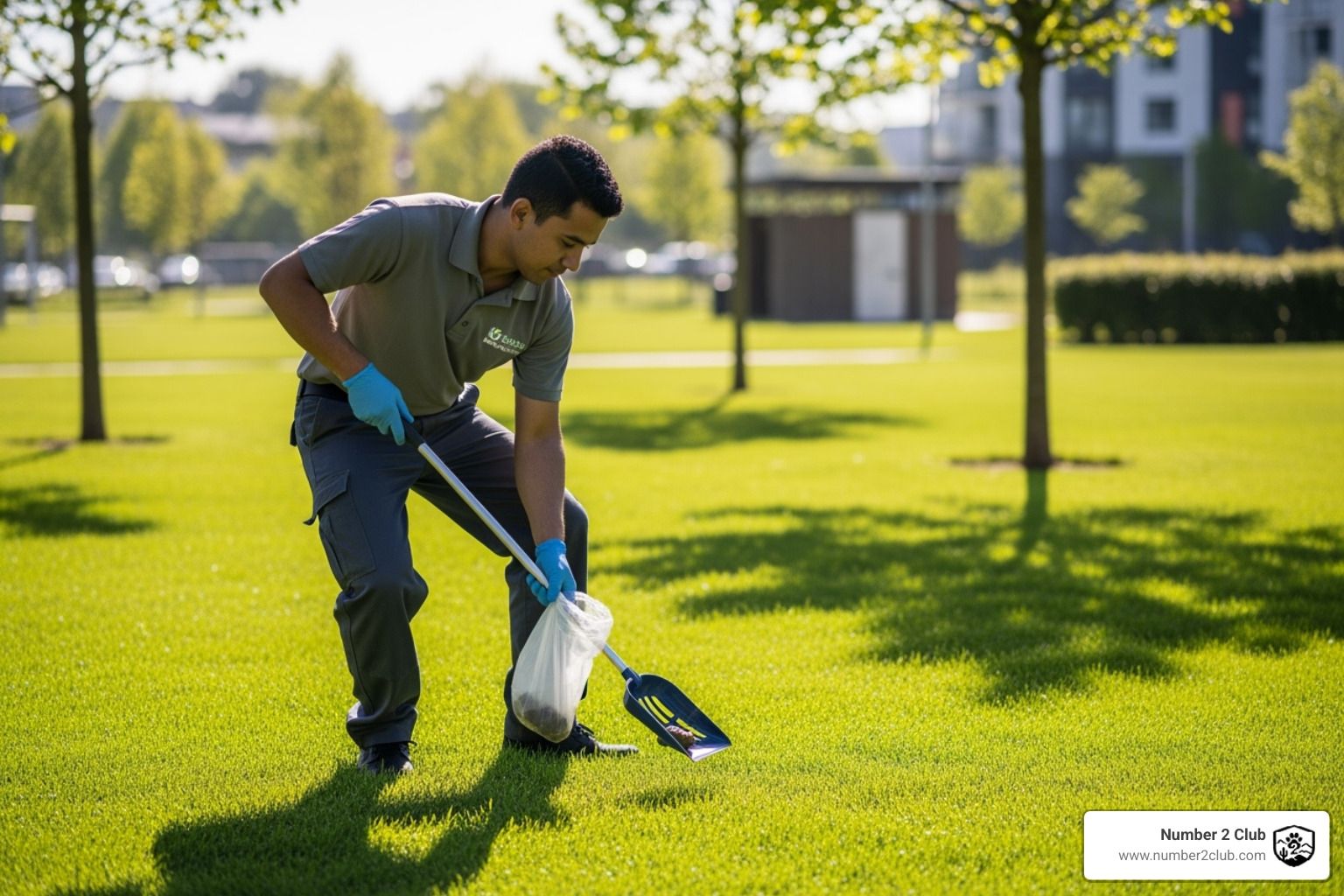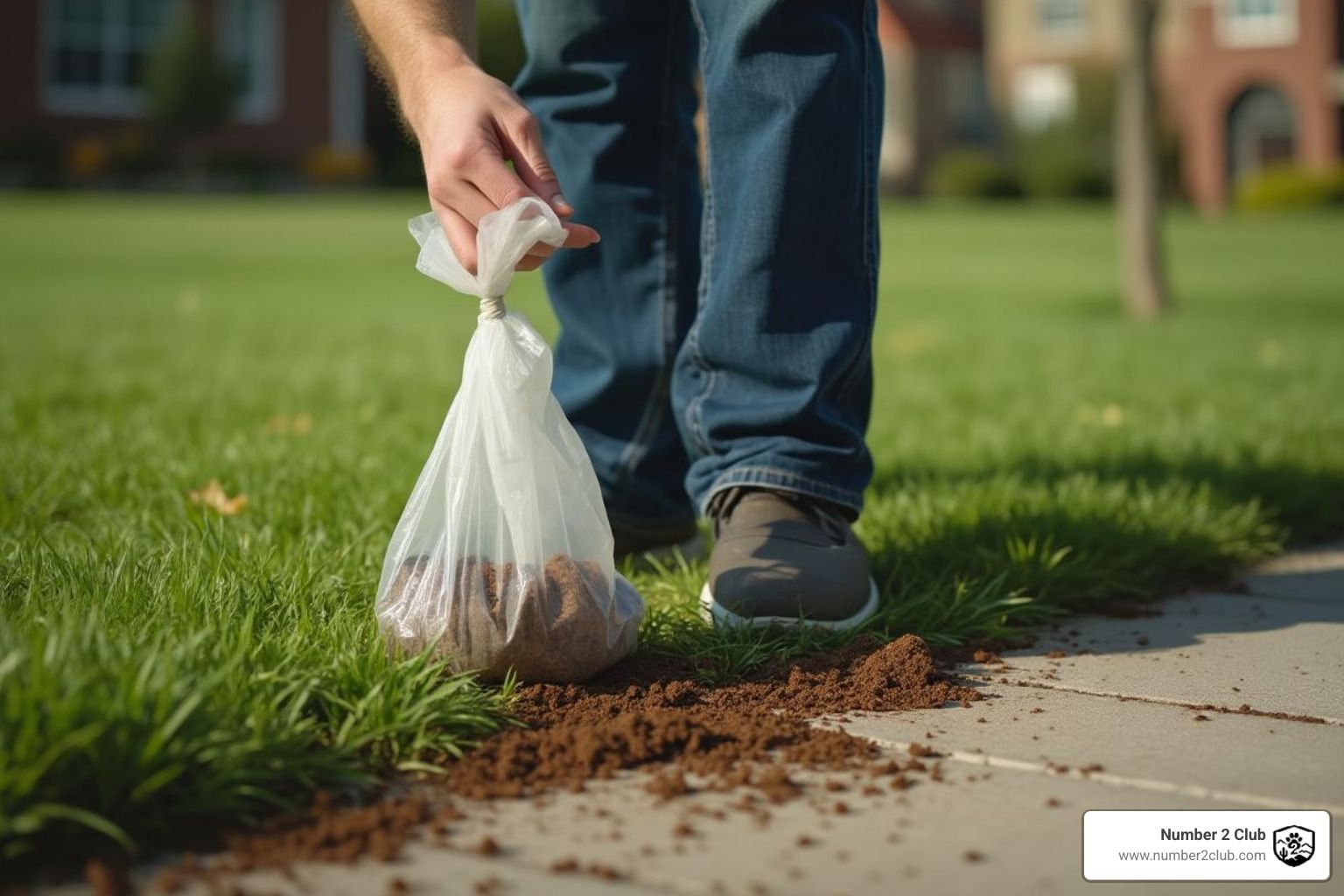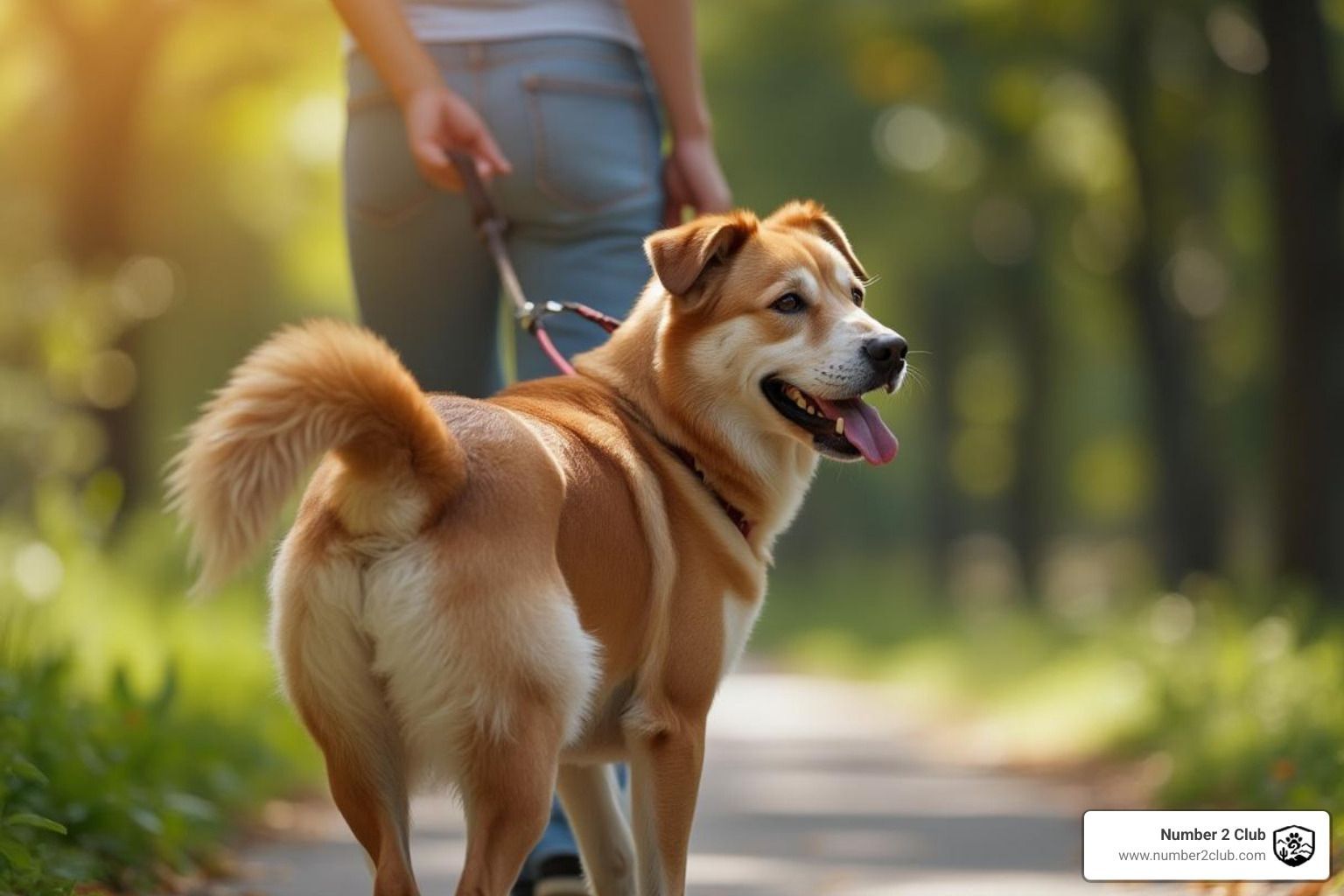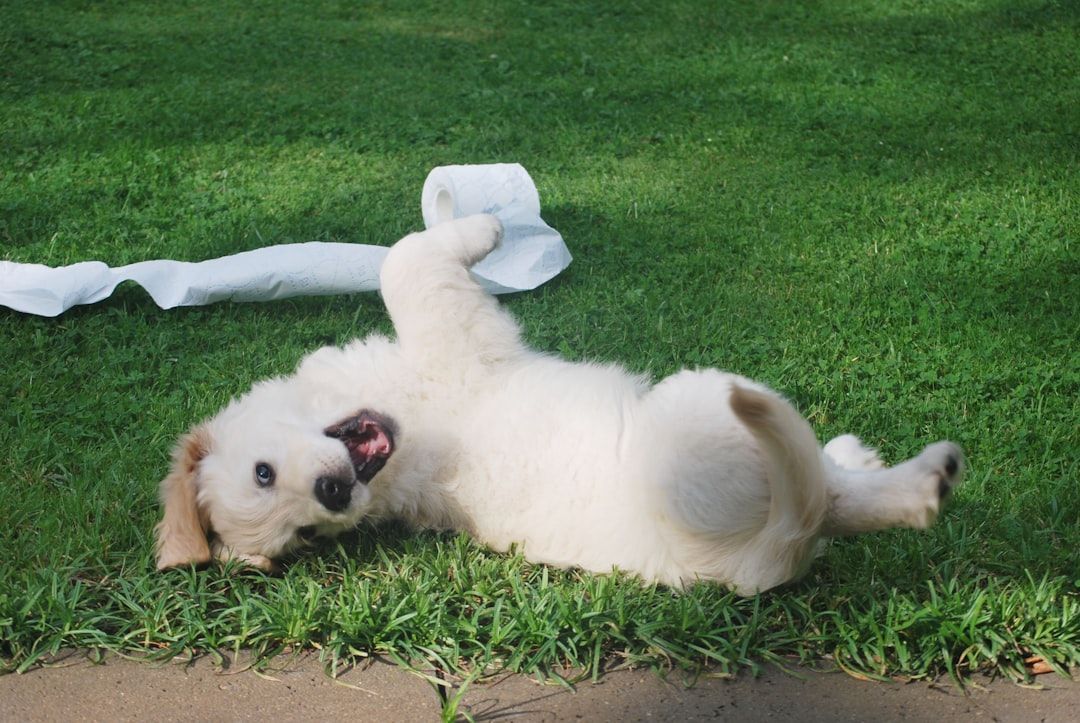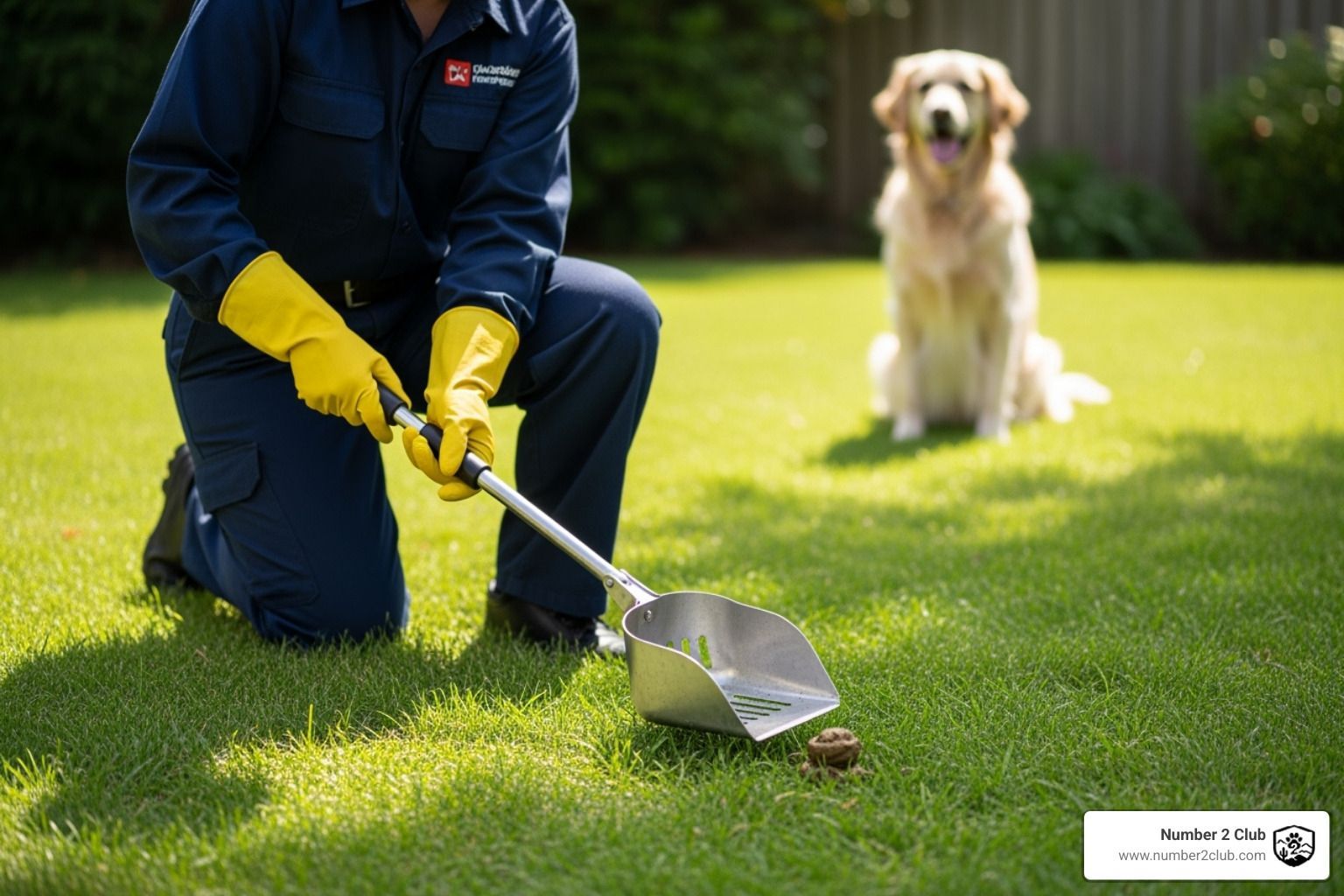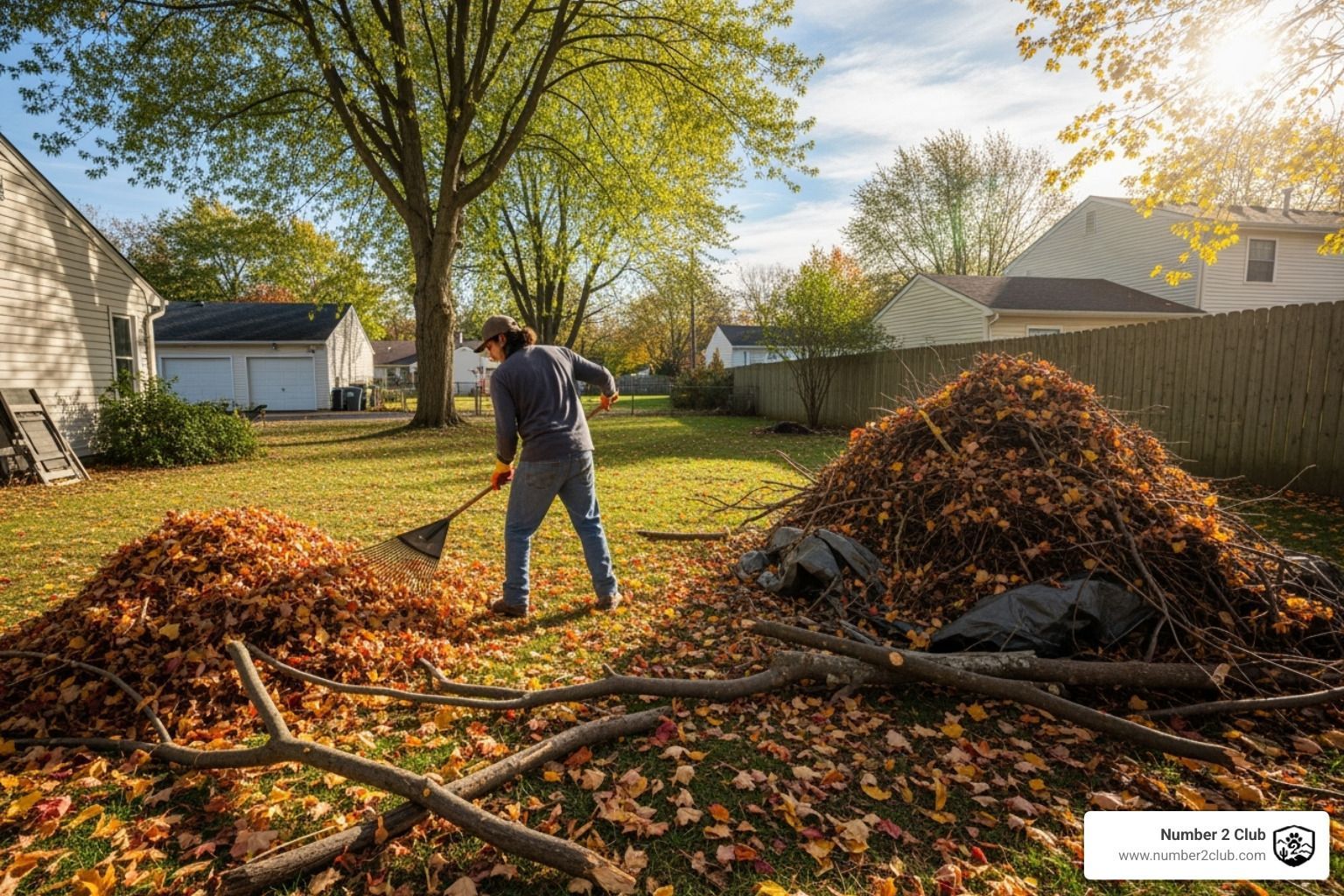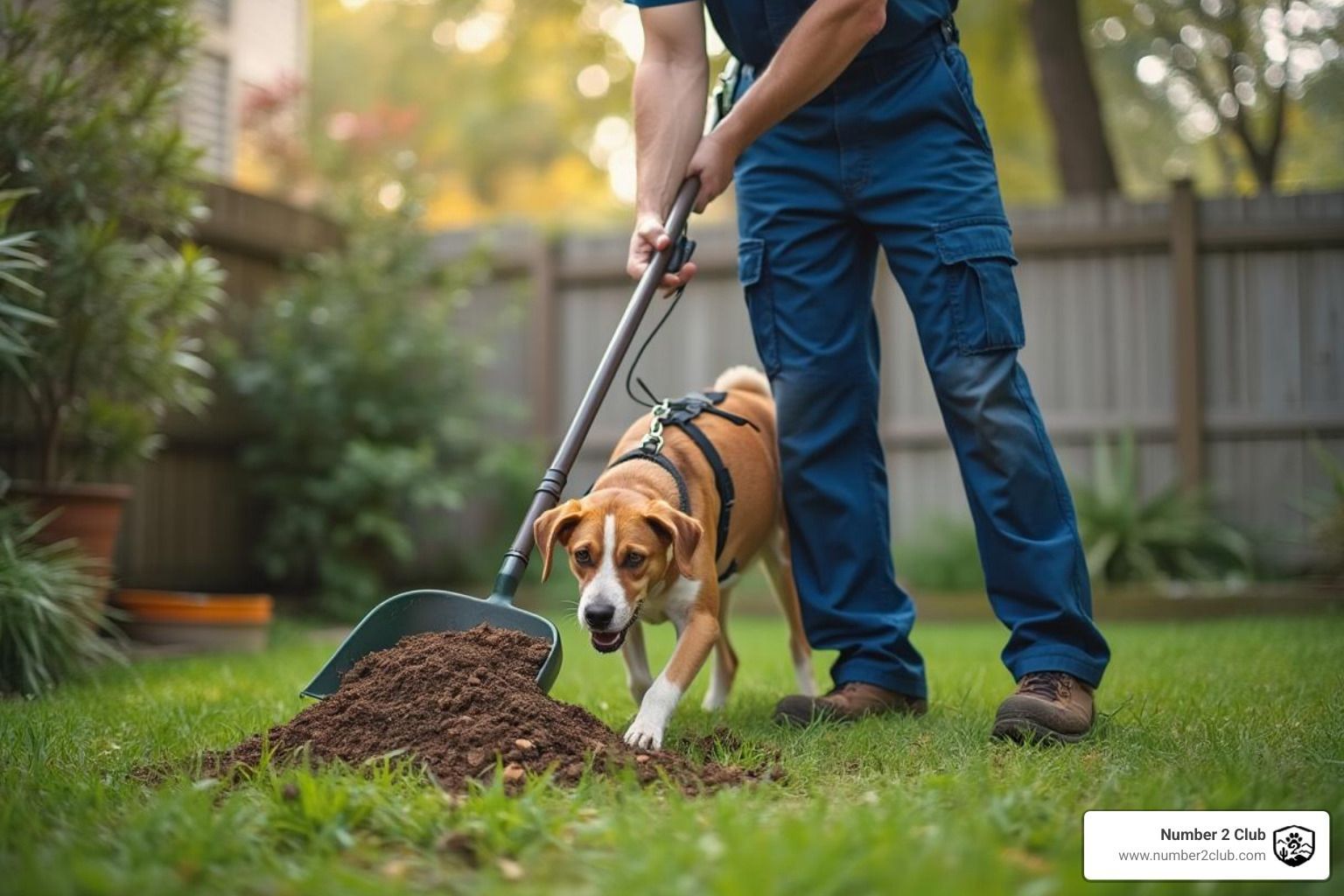How to Launch a Pet Waste Cleanup Business Without Stepping in It
Starting a Profitable Pet Waste Cleanup Business: The Ultimate Guide
If you're wondering how to start a pet waste cleanup business, here's what you need to know:
- Startup costs: $1,000-$5,000 (equipment, insurance, basic marketing)
- Potential earnings: $26,000-$40,000 annually (average), with some businesses reaching $250,000+
- Key requirements: Business license, liability insurance, waste disposal permits
- Equipment needed: Rake, dustpan, bags, disinfectant, gloves, buckets
- Pricing model: $15-$45 per visit (based on yard size and dog count)
The pet waste cleanup business industry continues to grow as more Americans become pet owners. With 44.5% of U.S. households owning at least one dog and each dog producing approximately 274 pounds of waste annually, there's a steady demand for this service. This low-barrier entry business offers entrepreneurs a chance to generate steady income with minimal startup costs.
Starting a pooper scooper service isn't glamorous, but it's surprisingly profitable. The waste management industry collectively generates $25.1 billion in revenue annually with average profit margins around 7%. Many successful pet waste removal companies report gross margins of approximately 50%, with net profit margins reaching up to 20%.
The appeal is simple: pet owners love their dogs but hate cleaning up after them. They're willing to pay for the convenience of having someone else handle this unpleasant chore. Additionally, pet waste poses serious health and environmental risks when left unattended, creating a genuine need for professional removal services.
I'm Joseph Lopez, founder of Number 2 Club, a premium pet waste removal company serving Arizona's West Valley with over five years of experience growing a successful pet waste cleanup business from the ground up. My journey from a single-person operation to a thriving company with multiple technicians has given me insight into what makes this business model work.

What Is a Pet Waste Cleanup Business?
A pet waste cleanup business is exactly what it sounds like – we're the folks who take care of the messy job that most pet owners dread! We professionally remove and dispose of animal waste from yards, parks, and commercial properties, helping keep outdoor spaces clean, healthy, and enjoyable for everyone.
Think of us as the unsung heroes of clean lawns and fresh-smelling backyards. At its core, our business is simple: we visit properties on a regular schedule, thoroughly clean up all pet waste, and properly dispose of it according to local regulations.
Most successful pet waste cleanup businesses(including Number 2 Club) operate within about a 45-minute driving radius. This isn't random – it's a strategic choice that maximizes efficiency. By focusing locally, our technicians can service multiple properties each day without wasting hours driving. At Number 2 Club, we've found our sweet spot serving Litchfield Park, Goodyear, Verrado, and Buckeye in Arizona.
The real beauty of this business model lies in recurring service subscriptions. Most clients sign up for weekly or twice-weekly cleanups, creating predictable, steady income you can count on. We've finded that an ideal client mix includes about 70% residential customers complemented by 30% commercial contracts – this balance provides stable revenue along with those larger-scale commercial opportunities.
Why Demand Keeps Growing
The need for pet waste cleanup businesses continues to grow, and for good reason. Each dog produces approximately 274 pounds of waste annually – that's a lot of poop! With busy work schedules and family commitments, many pet owners simply don't have time to patrol their yards regularly.
Health concerns drive much of the demand. Dog waste isn't just unpleasant – it's actually dangerous. A single gram can contain 23 million fecal coliform bacteria, posing serious health risks to humans and other animals. The EPA even classifies pet waste as a toxic pollutant in the same category as herbicides and oil!
When rain washes over neglected pet waste, it creates contaminated runoff that can pollute local water supplies. Plus, the high nitrogen content damages grass, leaving those telltale brown spots throughout otherwise lovely lawns.
With approximately 90 million dogs in the United States and 44.5% of households owning at least one dog, the potential client base is enormous and still growing. More pets means more poop – and more opportunity for dedicated waste removal professionals. For more detailed information about pet ownership statistics and trends, check out the American Veterinary Medical Association's research on pet ownership.

Typical Services Offered
A comprehensive pet waste cleanup business typically offers several service options to meet different client needs. Regular weekly or twice-weekly yard maintenance forms the foundation of most services, with pricing usually based on yard size and number of dogs.
Many clients first find us when they need a one-time "yard detox" – that initial deep clean to restore a neglected yard to pristine condition. These cleanups can be particularly satisfying (and profitable) work!
For commercial clients like HOAs and apartment complexes, we often install and maintain pet waste stations, ensuring residents have access to bags and proper disposal options. Many clients also appreciate additional services like yard deodorizing and sanitization treatments, which eliminate lingering odors and kill harmful bacteria.
Some pet waste cleanup businesses expand their offerings to include cat litter box maintenance or special event cleanup for dog parks and pet-friendly gatherings. At Number 2 Club, we've found that starting with core services and gradually expanding as we grow has been the most sustainable approach.
When done right, this business truly helps communities stay cleaner, healthier, and more enjoyable for everyone – pets and humans alike!
Step-by-Step Guide to Start Your Pet Waste Cleanup Business
Ready to dive into the wonderful world of waste management? Starting a pet waste cleanup business might not sound glamorous at first, but trust me – there's gold in those doggy deposits! I've walked this path myself and want to share exactly how you can turn this smelly opportunity into a thriving business.
Getting started doesn't have to be complicated. In fact, that's one of the beauties of this business model – you can begin with minimal investment and scale as you grow. Before you grab that pooper scooper though, let's make sure you've got all your ducks (or should I say, dogs?) in a row.
Your startup checklist should include thorough market research to understand local demand, proper legal setup to protect yourself, appropriate licensing and insurance, and smart route planning to maximize efficiency. Without these foundations, you might find yourself in a... messy situation.
The pet waste cleanup business model works because it solves a real problem. Pet owners love their furry friends but hate dealing with the aftermath of their outdoor trips. By offering a reliable, professional solution, you're not just cleaning yards – you're giving people back their time and peace of mind.
Before you hit the streets, take time to research your local market. Are there already established services in your area? What neighborhoods have the highest concentration of dog owners? Understanding your market will help you target your efforts where they'll be most effective.
Different areas have different regulations regarding waste disposal. Some municipalities classify pet waste as residential waste, while others have specific requirements. Make sure you're familiar with local ordinances before you start.
For more detailed information about residential services, check out our approach at Number 2 Club Residential Services. We've refined these offerings through years of experience and customer feedback.
In the following sections, we'll break down each step of the process in detail – from researching your market to setting prices that maximize profits. The journey to becoming the "#1 in the #2 business" starts with careful planning and preparation!
1. Research & Business Plan
Before you pick up your first pooper scooper, take some time to understand your market and create a solid foundation for your pet waste cleanup business. This planning stage might not be as exciting as landing your first client, but it's absolutely crucial for long-term success.
Define your service area with realistic boundaries. I recommend limiting your initial radius to within 45 minutes of your home base. This keeps your driving time manageable and maximizes the number of yards you can service each day. When we started Number 2 Club, we focused exclusively on Litchfield Park before gradually expanding to Goodyear and Buckeye as we gained experience and clients.

When analyzing your local competition, be thorough but don't get discouraged if there are already established services. Look at their pricing structure, service packages, and online presence. Check their reviews to identify potential weaknesses – maybe they're unreliable or don't offer weekend service. These gaps become your opportunities.
Understanding your ideal customers makes marketing much more effective. In my experience, the sweet spot tends to be middle to upper-middle-class households with multiple dogs. Busy professionals who work long hours, families juggling kids' activities, and seniors who find yard work physically challenging are all excellent prospects. Create detailed customer personas that help you visualize exactly who you're serving.
Your financial projections should be realistic rather than optimistic. Most pet waste cleanup businesses can start with $1,000-$5,000, covering basic equipment, insurance, and initial marketing. Calculate your monthly expenses including gas, waste bags, equipment replacement, and marketing costs. Then estimate how many clients you'll need at your target price point to break even – typically this happens within 3-6 months if you're consistent with marketing.
Finally, pull everything together into a business plan that serves as your roadmap. Include an executive summary that captures your vision, detailed service descriptions, your market analysis findings, a clear marketing strategy, day-to-day operations procedures, and those financial projections we just discussed. This document isn't just for you – it's essential if you ever seek financing or bring on business partners.
The research phase might feel like it's delaying your launch, but it dramatically increases your chances of success. A well-researched pet waste cleanup business is much more likely to thrive than one launched on impulse.
2. Register & Stay Legal
Getting your pet waste cleanup business properly registered isn't the most exciting part of starting your new venture, but it's absolutely essential. Think of it as building a solid foundation that protects both you and your business as you grow.
When I started Number 2 Club, I quickly realized that choosing the right business structure was my first important decision. Most pooper scooper businesses begin as either a sole proprietorship or an LLC. A sole proprietorship is definitely the simplest and cheapest way to get started—often requiring minimal paperwork and fees under $100. The downside? Your personal assets aren't protected if something goes wrong.
That's why I recommend considering an LLC for your pet waste cleanup business from day one. Yes, it costs a bit more upfront ($50-$500 depending on your state), but the peace of mind knowing your personal assets are separate from your business is well worth it. Plus, an LLC gives you flexibility with taxes while looking more professional to potential clients.
Choosing a memorable business name is your next step. Have some fun with this! Consider playful alliteration or puns that clearly communicate what you do. Just make sure to check if the domain name is available for your website, and register your chosen name with your county clerk as a DBA (Doing Business As).
Now for the paperwork that keeps you operating legally:
Business licenses and permits are non-negotiable. You'll need a general business license from your city or county, and depending on your location, you might need specific waste management permits. Don't forget to get your EIN (Employer Identification Number) from the IRS—it's your business's tax ID number and necessary for opening business accounts.
Insurance coverage is absolutely critical in this line of work. At minimum, secure general liability insurance with at least $1 million in coverage. If you're using a dedicated vehicle for your routes, you'll need commercial auto insurance too. And once you start hiring help, workers' compensation becomes a requirement.
Finally, establish proper business banking. Keep your personal and business finances completely separate by opening a dedicated business checking account and getting a business credit card for expenses. Set up reliable payment processing through services like Square or Venmo Business to make it easy for clients to pay you.
| Business Type | Setup Cost | Liability Protection | Tax Complexity | Growth Potential |
|---|---|---|---|---|
| Sole Proprietor | $0-$100 | None | Low | Limited |
| LLC | $50-$500 | Good | Medium | Good |
| Franchise | $25K-$100K | Varies | High | Excellent |
The legal setup might feel tedious at first, but trust me—handling these details properly from the beginning saves enormous headaches down the road. Your pet waste cleanup business deserves the protection and professional foundation that comes from being properly registered and insured.
3. Gear Up on a Budget
One of the best things about starting a pet waste cleanup business is that you won't need to empty your savings account to get equipped. Let's talk about what you'll actually need to start scooping professionally.
When I started Number 2 Club, I was amazed at how little I needed to get going. Your basic toolkit should include an ergonomic rake (your back will thank you later), a sturdy dustpan (pro tip: flip the handle for better leverage when scooping), plenty of biodegradable waste bags, and some kennel-grade disinfectant spray. Don't forget heavy-duty gloves—trust me on this one—and dedicated boots or work shoes you won't mind getting dirty. A few 5-gallon buckets with secure lids will round out your essential equipment.
As for transportation, the beauty of this business is that any reliable vehicle will work when you're starting out. You don't need anything fancy—just something that gets decent gas mileage since you'll be driving between properties. Vehicle magnets are an affordable way to turn your car into a moving billboard, and they're easy to remove when you're off the clock.

The technology side doesn't have to be complicated either. A simple scheduling app will help optimize your routes (saving you time and gas), while basic accounting software keeps your finances in order. A customer relationship management (CRM) system might sound fancy, but even a spreadsheet can work when you're starting out. Mobile payment processing is essential though—clients love the convenience of paying electronically.
Don't forget your marketing materials! Business cards, door hangers, and yard signs are relatively inexpensive ways to spread the word. Branded apparel doesn't just look professional—it also turns you into a walking advertisement while you work.
The real beauty of this business? You can get started with the absolute basics for under $200. A more comprehensive professional setup with quality tools and marketing materials typically runs $800-$1,500—still remarkably affordable compared to most business startups.
You can always upgrade your equipment as your business grows. Many of our technicians at Number 2 Club started with just the essentials and gradually invested in better tools as their client list expanded. Start simple, stay practical, and focus on providing excellent service rather than having the fanciest equipment.
4. Set Winning Prices
Figuring out what to charge clients might be the trickiest part of your pet waste cleanup business. I learned this when starting Number 2 Club - price too low and you'll work yourself to the bone for pennies; price too high and your phone won't ring.
Your pricing needs to reflect the true value of the service you're providing. You're not just picking up poop - you're giving people back their time, protecting their family's health, and keeping their yard beautiful.
When setting your rates, consider several key factors. The number of dogs is usually the biggest variable - more dogs means more waste to collect. Yard size affects how long each job takes you. Service frequency matters too - weekly clients should get better rates than one-time cleanups. And don't forget to research what others charge in your local market- pricing in Phoenix will be different than in Portland.
At Number 2 Club, we've found that clients prefer transparent pricing based on pet count rather than yard size. It's simpler for them to understand and more predictable for our scheduling. Here's what a basic weekly service might look like:
For one dog, you might charge $15-$22 per week. Two dogs would bump that to $20-$27, three dogs to $25-$32, and four dogs around $30-$37 weekly. For that initial "yard detox" when you first take on a neglected property, charging $45-$75 is reasonable depending on the condition.
Consider using a tiered pricing approach where you have a base rate for one dog with small increases for each additional pet. Many successful scoopers also offer frequency discounts to encourage weekly rather than monthly service (which is better for everyone involved).
One strategy that's worked wonders for our business is pre-billing clients monthly. Not only does this improve your cash flow, but it dramatically reduces the time you spend chasing payments. Most clients appreciate the convenience of setting up automatic payments and forgetting about it.
Don't forget to consider add-on services as additional revenue streams. Yard deodorizing, disinfecting, or pet station maintenance can all command premium prices above your base service fee.
Your pricing should reflect the professional nature of your service while remaining competitive enough to build a client base. As you gain experience and establish a reputation, you'll have more flexibility to adjust your rates upward.
5. Dispose Waste the Right Way
Let's talk about the not-so-glamorous but absolutely essential part of running a pet waste cleanup business: what to do with all that poop once you've scooped it!
Proper waste disposal isn't just about being tidy—it's about protecting the environment, following local laws, and maintaining your professional reputation. Trust me, nothing will sink your business faster than improper waste handling.
The most common approach we use at Number 2 Club is the double-bag method. We securely bag the waste, tie it tightly, then place it in a second bag for extra protection against leaks and odors. This simple step makes a world of difference, especially during Arizona's scorching summer months when the heat can intensify those unpleasant smells!
When it comes to where that double-bagged waste ends up, you have a few options:
Your client's trash bin is typically the most practical solution. Always get permission first, and make sure to place the waste in their bin on collection day or the night before—never leave it sitting in the Arizona heat for days. Some clients might have specific preferences about bin placement, so it's worth asking.
If you're operating at a larger scale, having your own waste management contract with a dedicated company dumpster might make sense. This gives you more disposal flexibility but comes with additional monthly costs.
Here in the West Valley (Litchfield Park, Goodyear, Verrado, and Buckeye), we need to be extra mindful of our disposal practices. Our desert ecosystem is fragile, and improper waste disposal can have serious environmental consequences. Never dispose of pet waste in storm drains, waterways, or open land.
Some enterprising business owners ask about composting dog waste. While specialized commercial facilities exist for this purpose, standard home composting systems don't reach high enough temperatures to kill pathogens in dog waste. If you're interested in green disposal options, research local commercial composting facilities that specifically accept pet waste.
Different municipalities may have different regulations regarding pet waste disposal. Before launching your pet waste cleanup business, take time to review your local sanitation codes. This small bit of research can save you from potential fines and reputation damage down the road.
At the end of the day, responsible waste disposal is what separates the professionals from the amateurs in this business. Your clients are paying you to handle this unpleasant task properly—make sure you're doing right by them and your community.
Profitability, Costs & Everyday Operations
Let's talk money – after all, that's why you're considering a pet waste cleanup business in the first place! The good news is that this business offers a surprisingly healthy profit potential with minimal upfront investment.
Starting up won't break the bank. You can launch your pooper scooper service with as little as $950, though most folks invest around $2,000-$3,000 for a more professional start. Your biggest initial expenses will be insurance ($500-$1,500 annually) and some basic marketing materials to get your name out there.
Once you're up and running, your monthly expenses stay pretty manageable. Fuel will likely be your biggest ongoing cost since you'll be driving between properties. At Number 2 Club, we spend about $300-400 monthly keeping our vehicles moving throughout Goodyear and surrounding areas. Those biodegradable waste bags add up too – expect to spend $50-$150 monthly depending on your client load.
The beauty of this business is in the margins. With average clients paying $80-$120 monthly for regular service, and one technician able to handle 100-125 weekly visits, you're looking at potential annual revenue of $100,000-$150,000 per tech. Our gross margins hover around 50%, with net profit margins of 15-20% – even higher if you're doing the scooping yourself rather than hiring employees.
"When I started Number 2 Club, I was amazed at how quickly the business became profitable," I often tell new entrepreneurs. "The key is efficient routing – we group clients by neighborhood and plan our days to minimize drive time. A well-organized scooper can service a yard in 2-5 minutes plus travel time."
Don't forget to plan for seasonal fluctuations. Spring typically brings a surge in demand after winter accumulation, while summer in Arizona means early morning routes to beat the heat.
Earnings Benchmarks for a Pet Waste Cleanup Business
What can you realistically expect to earn with a pet waste cleanup business? More than most people think!
The average hourly earning rate lands around $15 per hour, with a typical range between $8.41-$18.75 depending on your efficiency and local market rates. This translates to annual earnings between $26,000-$37,500 for individual scoopers, with top performers reaching around $40,000.
When viewing your operation as a business rather than just a job, the numbers get even more interesting. A solo operation typically generates $50,000-$100,000 annually. Add a couple of technicians, and you're looking at $100,000-$250,000. Some of the larger operations in the industry exceed $500,000 in annual revenue.
The growth potential is real. I've seen operations that started with just a few hundred dollars grow into six-figure businesses within a year or two. The secret isn't complicated – focus on excellent service, high customer retention, and strategic expansion of your service area.
For more detailed salary information in this industry, check out ZipRecruiter's data on pooper scooper salaries which provides up-to-date information on earnings across different regions.
Commercial contracts can significantly boost your bottom line. Homeowners associations, apartment complexes, and dog parks often pay premium rates for regular waste removal. At Number 2 Club, we've found that a mix of residential and commercial clients provides the most stable income stream and highest profit potential.
A Day in the Life of a Scooper
Curious what your daily routine might look like running a pet waste cleanup business? Let me walk you through a typical day at Number 2 Club:
My mornings start around 7:00 AM with coffee and route planning. I check the day's schedule, making sure clients are clustered efficiently by neighborhood. I verify any special instructions – like gate codes or notes about friendly (or not-so-friendly) pets – and load up my truck with freshly sanitized equipment.
By 8:00 AM, I'm on the road. Using our route optimization software, I steer from property to property in the most efficient sequence. Many of our clients appreciate a quick heads-up text before arrival, especially if they have dogs that might get excited about visitors.
Entering each yard, I'm careful about securing gates – always double-checking them behind me. I've developed a systematic scanning pattern that ensures I don't miss any deposits, working my way methodically across each yard. For documentation and quality control, I take quick "after" photos showing the cleaned yard.

Between properties, I sanitize my equipment to prevent cross-contamination – an important health consideration that our clients appreciate. I might service 15-20 yards in a day, finishing up my route by mid-afternoon.
The late afternoon is for wrapping up – properly disposing of the collected waste, thoroughly cleaning equipment, and handling administrative tasks. I update customer records, process payments, and respond to new service inquiries. Before calling it a day, I plan tomorrow's route and make sure all equipment is ready to go.
"The most satisfying part," I often tell people considering this business, "is the immediate visual result. You transform yards from minefields to clean, safe spaces for families and pets to enjoy. Plus, most clients never actually see you – you're like a lawn fairy who magically makes the poop disappear!"
Building efficient habits makes all the difference in your daily productivity. Carry treats (with owner permission) for friendly dogs, develop consistent yard scanning patterns, and always double-check those gates. These small practices add up to a smooth, profitable operation that keeps clients happy year after year.
Marketing & Scaling Without Stepping in It
Growing your pet waste cleanup business requires strategic marketing and scalable operations. Here's how to expand without common pitfalls:
Branding essentials:
- Choose a memorable, professional name (avoid overly crude humor)
- Develop a consistent visual identity
- Create a simple, mobile-friendly website
- Design professional uniforms and vehicle branding
- Establish a clear value proposition
Local marketing tactics:
- Optimize your Google Business Profile for "pet waste removal [your city]"
- Distribute door hangers in pet-friendly neighborhoods
- Partner with veterinarians, groomers, and pet stores
- Offer referral incentives to existing customers
- Join local pet-owner Facebook groups
- Attend pet-related community events
Digital marketing strategies:
- Create location-specific service pages on your website
- Collect and showcase customer reviews
- Use targeted Facebook and Instagram ads
- Implement email marketing for customer retention
- Create helpful content about pet waste health risks
Scaling operations:
- Document standard operating procedures
- Develop training materials for new hires
- Implement quality control measures
- Invest in efficient scheduling and routing software
- Add complementary services (deodorizing, waste stations)
At Number 2 Club, we've found that word-of-mouth and referrals drive significant growth once you establish a reputation for reliability and thoroughness.
Local SEO & Digital Tactics for "Dog Waste Removal Goodyear"
For a pet waste cleanup business, local SEO is crucial to connecting with nearby customers searching for your services. Here's our approach:
Keyword strategy:
- Focus on location-specific terms: "dog waste removal Goodyear" or "pooper scooper service Litchfield Park"
- Include service variations: "pet waste cleanup," "dog poop pickup service"
- Target long-tail phrases: "weekly dog waste removal near me"
Google Business Profile optimization:
- Verify and complete your profile with accurate business information
- Choose the most relevant categories
- Add geo-tagged photos of your service areas
- Respond promptly to all reviews
- Post regular updates about services and offers
Website localization:
- Create dedicated pages for each service area (Litchfield Park, Goodyear, Verrado, Buckeye)
- Include neighborhood names and landmarks in content
- Embed Google Maps on contact and service area pages
- Feature local customer testimonials
- Optimize meta titles and descriptions with location keywords
Review generation strategy:
- Follow up with satisfied customers requesting reviews
- Make the review process simple with direct links
- Respond thoughtfully to all reviews, especially negative ones
- Showcase reviews on your website and social media
Local content marketing:
- Create blog posts about pet-friendly parks in your service areas
- Develop guides to local pet regulations and resources
- Share content in community Facebook groups and Nextdoor
When to Hire & Expand
Knowing when and how to grow your pet waste cleanup business is crucial for sustainable success:
Signs you're ready to hire:
- Routes consistently take more than 8 hours to complete
- You're turning away new customers due to capacity limits
- You've maintained profitability for at least 6 months
- You have documented processes that can be taught
Hiring options:
- Part-time technicians (typically $15-$18/hour)
- Independent contractors (per-yard payment structure)
- Family members (often the first step in expansion)
Training best practices:
- Create a standardized training manual
- Require ride-alongs before solo work
- Implement quality checks and customer feedback systems
- Provide clear expectations and performance metrics
Expansion strategies:
- Add complementary services (deodorizing, pet waste stations)
- Extend into nearby communities
- Target commercial clients (HOAs, apartment complexes)
- Consider franchise opportunities once proven successful
At Number 2 Club, we expanded from Litchfield Park to neighboring communities only after establishing efficient operations and building a solid reputation in our initial service area.
Frequently Asked Questions About Starting a Pet Waste Cleanup Business
How much does it cost to start?
One of the most appealing aspects of starting a pet waste cleanup business is its affordability. You can get started with remarkably little investment compared to other business ventures.
For a bare-bones startup, you'll need only about $500-$1,000. This covers your basic equipment like a quality rake, dustpan, and biodegradable bags (around $200-$300), your initial business registration and licenses ($50-$200), some simple marketing materials to get your name out there ($100-$200), and your first insurance premium payment ($150-$300).
If you're looking for a more professional launch with custom branding, a polished website, and higher-quality equipment, you might invest $3,000-$5,000. The good news? Many successful scoopers (myself included!) started with minimal investment and simply reinvested our early profits to fuel growth. This business truly rewards the patient entrepreneur who's willing to start small and grow organically.
Do I need special licenses to haul pet waste?
The licensing requirements for your pet waste cleanup business will vary depending on where you operate, but here's what you typically need to consider:
First, you'll need a standard business license, which is required in most cities and towns. This is your basic permission to operate a business in your area.
Some localities also require a specific waste hauling permit when you're transporting animal waste. This isn't universal, but it's worth checking with your local Department of Environmental Protection or Waste Management office to avoid any surprises down the road.
In some jurisdictions, you might also need health department permits related to handling potential biohazards. Pet waste can contain pathogens, so some areas regulate its handling more strictly than others.
Here in Arizona's West Valley (including Litchfield Park, Goodyear, Verrado, and Buckeye), our requirements are relatively straightforward, but I always recommend checking with each specific municipality before you launch. Operating without required permits can result in fines that will quickly eat into your profits – definitely not the kind of surprise any new business owner wants!
How should I set my service radius?
After years in this business, I've found that limiting your service radius to within 45 minutes of your home base is the sweet spot for efficiency and profitability.
This focused approach lets you maximize the number of yards you can service each day while keeping your fuel costs and vehicle wear manageable. It also significantly reduces non-billable travel time (which is essentially money down the drain in this business). A tighter service area makes route planning much more efficient and allows you to be more responsive when special requests or emergencies pop up.
As your pet waste cleanup business grows, you'll want to think strategically about expansion. Consider clustering clients by neighborhood and designating specific days for specific areas to maximize efficiency. When you're ready to expand, do so gradually by moving into adjacent communities rather than jumping to distant areas.
At Number 2 Club, we followed this exact approach – starting in Litchfield Park and methodically expanding to Goodyear, Verrado, and Buckeye as our client base grew. We've always maintained efficient routing as our top priority, which has been key to our profitability.

Conclusion
Stepping into a pet waste cleanup business isn't just about scooping poop—it's about creating cleaner, healthier spaces for families and their furry friends. With minimal startup investment and a straightforward business model, this entrepreneurial path offers something increasingly rare: an accessible opportunity with genuine growth potential.
Throughout my journey building Number 2 Club across Arizona's West Valley, I've finded that success in this field comes down to a few fundamental principles. Clean yards create happy customers, and happy customers lead to recurring revenue that builds a sustainable business.
The beauty of this business lies in its simplicity. You're solving a real problem that pet owners face daily—dealing with the less glamorous side of pet ownership. By taking this task off their hands, you're giving them back precious time while ensuring their outdoor spaces remain safe and enjoyable.
Your success will largely depend on how professionally you operate. From your first client interaction to your consistent service delivery, professionalism sets you apart in an industry where reliability matters tremendously. When clients know they can count on you to show up consistently and do a thorough job, they'll stick with you for years.
Smart routing becomes your secret weapon for profitability. By clustering clients geographically and minimizing travel time, you can maximize the number of yards serviced daily. This operational efficiency directly impacts your bottom line and allows you to serve more clients without extending your workday.
As your client base grows, you'll face exciting decisions about expanding your service area, hiring help, or adding complementary services. The foundation you've built through documented processes and systems will make this growth smoother and more sustainable.
You're not just cleaning yards—you're providing peace of mind, protecting environmental health, and giving families clean spaces to enjoy with their pets. This perspective helps maintain enthusiasm on even the most challenging days.
The pet waste industry continues to grow alongside increasing pet ownership, creating plenty of room for well-run operations to thrive. With dedication to service excellence and smart business practices, your pet waste cleanup business can quickly become a reliable source of income while genuinely improving your community.
Ready to make your mark in the "#2" business? With proper planning and execution, Number 2 Club is here to help you stay #1 in this essential service industry. Learn more about our Goodyear services and find how we've built our reputation for excellence across Litchfield Park, Goodyear, Verrado, and Buckeye by focusing on these core principles.


